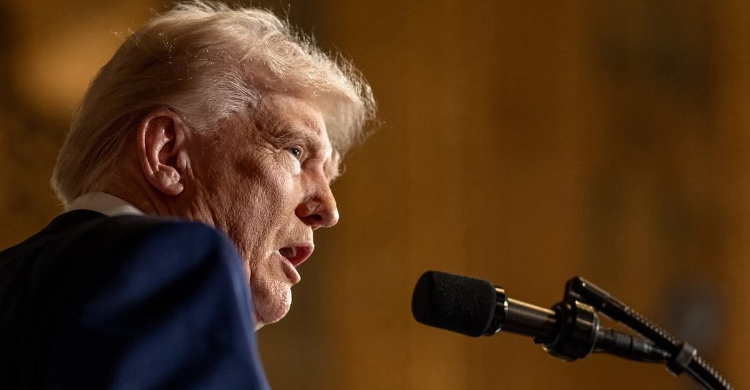lipflip – Former President Donald Trump is defending the U.S. government’s decision to acquire a 10% stake in Intel, calling critics “stupid” for questioning the move. In a post on Truth Social, Trump claimed the deal cost taxpayers “zero” while valuing the stake at approximately $11 billion. He emphasized the government’s intent to support domestic chip production while generating returns for the public.
Read More : TikTok to Add Voice Notes, Images, and Video Chats
Critics, including Senator Rand Paul, labeled the deal as “socialism” and warned it could set a dangerous precedent of government intervention. The criticism centers around concerns that using public funds to invest in private companies distorts free markets and could lead to overreach.
The $8.9 billion investment in Intel includes $5.7 billion in grants from the CHIPS and Science Act. While the administration insists the shares are non-voting and non-governing, some economists and lawmakers question whether this structure truly insulates Intel from political influence.
Trump defended the move by stating the government now holds valuable equity instead of simply handing out subsidies. “I will make deals like that for our Country all day long,” he posted, suggesting similar stakes could be taken in other companies.
Kevin Hassett, Director of the National Economic Council, supported the deal in a CNBC interview. He argued that previous federal programs gave money away without public benefit, while this deal offers taxpayers a potential return. Hassett noted the government will not interfere with Intel’s operations since the shares come without voting rights.
The goal is to strengthen domestic chip manufacturing and supply-chain resilience. However, critics argue this financial support might not be enough to revive Intel’s lagging chip technology. Which has fallen behind Taiwan’s TSMC.
Former Officials and Industry Experts Question Intel Stake Strategy and Effectiveness of CHIPS Funding
Despite Trump’s optimism, several experts have voiced serious concerns over the long-term effectiveness of the Intel investment. Two former Biden administration officials, Mike Schmidt and Todd Fisher. Criticized the equity stake strategy in a recent op-ed, calling it a flawed use of taxpayer dollars.
They argued that Intel has no shortage of capital, pointing to a recent $2 billion equity investment from SoftBank. According to them, government funding should not replace private sector investment but instead focus on solving strategic challenges—namely Intel’s struggle to secure manufacturing orders.
Intel’s new 18A chip process has yet to gain traction among major clients such as Apple, Nvidia, and AMD, all of whom rely heavily on TSMC. Schmidt and Fisher warn that if Intel’s upcoming 14A process faces similar setbacks. The company might exit cutting-edge chip manufacturing altogether. This scenario would leave TSMC and Samsung as the only global leaders.
Read More : Donald Trump Hopes to Meet Kim Jong-un, Mentions US Land
They stressed that the true return on investment should be measured in national security and supply-chain independence, not profits. A single supplier dominating global AI chip production poses serious risks, they warned.
Intel also acknowledged potential risks in a regulatory filing. Noting that a significant U.S. government stake could subject it to additional oversight or restrictions in foreign markets. This could complicate its global operations and trade relationships.
Meanwhile, reports suggest Trump may announce tariffs on foreign semiconductors to boost domestic demand for Intel’s chips. Intel CEO Lip-Bu Tan, in a video message, said the company doesn’t require government funding but welcomes cooperation to “make Intel great again.”
As the deal moves forward, it will serve as a test case for how far the U.S. government is willing to go to rebuild its semiconductor industry. And whether equity investments can truly deliver both economic and strategic returns.
